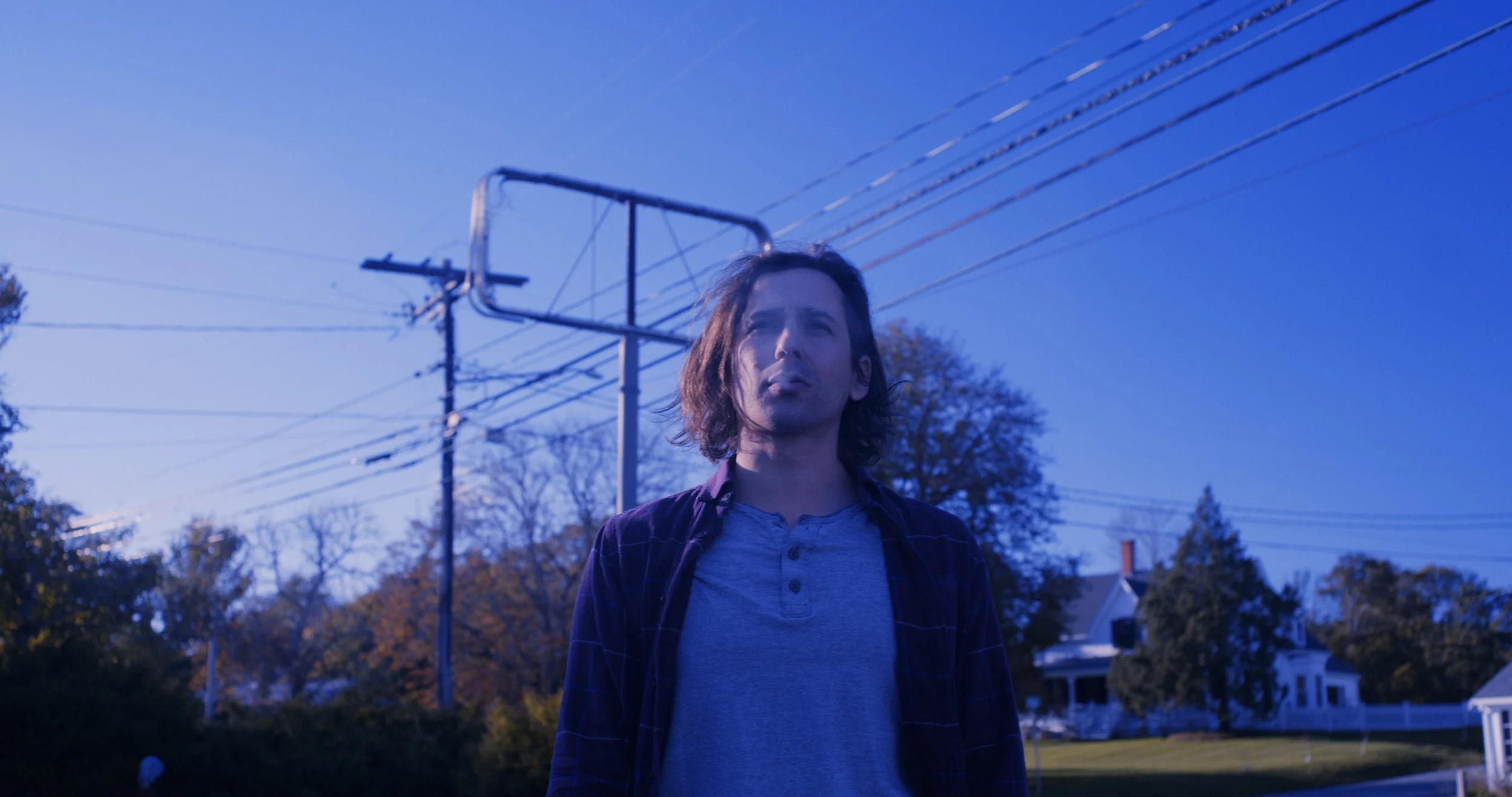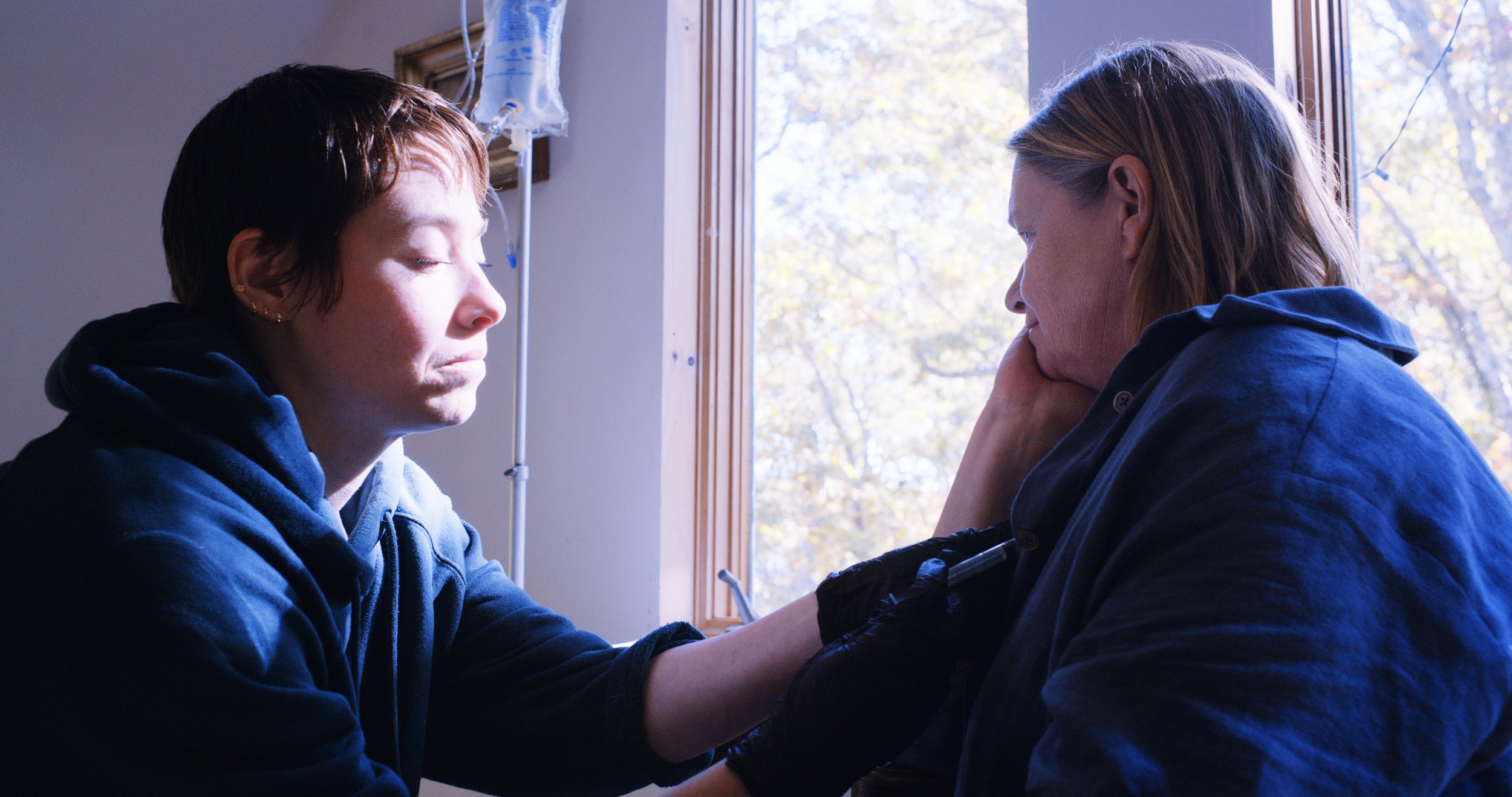The folks at the Boston Underground Film Festival were nice enough to send me a screener of writer/director/cinematographer Joseph Mault’s first feature-length effort, Strange Kindness. Knowing that Mault cut his teeth on music videos, I expected a slick and frenetic thriller. Surprisingly, Mault had a more contemplative journey in mind. Strange Kindness ended up being one of the more interesting films I’ve seen in some time.
Our lead is Chris (Deirdre Madigan in a masterfully controlled performance), and we meet up with her sometime in the recent past (late ‘00s, maybe?). She’s chosen to somewhat isolate herself from the outside world. She doesn’t have a phone or a TV and she allows her mail to pile up on the porch. Autumn is on its way in the Cape Cod beach town where she lives and the tourists are gone for the season. She’s sick, too, but not alone.
Leanne McLaughlin plays the world-weary Rose, Chris’ niece. She dotes on her beloved aunt and assists with administering the older woman’s chemotherapy. The beginning of the picture finds her thankful but shaken by the return of her troubled brother, James (Kristofor Giordano). The last of our significant players is credited only as “the Young Man,” and he is played by Michal Vondel. Though it’s a seemingly innocent moniker, he has recently killed some people while being shot himself in the process. The police are now scouring the sleepy village for him. What happens when Chris and the Young Man defy expectations while still being completely and utterly human.
Mault’s script is fairly straightforward, but still slightly unconventional with how it doles out information. Snippets of backstory are given via flashbacks, but it doesn’t want to hold your hand and spell out exactly what they mean. They’re almost like undiluted memories unencumbered by typical narrative demarcations. The story is deeply existential and humanistic. Traditional thriller genre beats are maximally subverted, resulting in a quiet exploration of characters with deep histories that are only really hinted at via brief pieces of dialog and unanticipated empathy. Mault wisely secures all of this to a sturdy three-act structure, ensuring a certain amount of rhythm and momentum for the film’s 90-minute runtime. Through it all, the dialog is naturalistic and believable.
Performances are all outstanding. If we don’t buy Chris’ actions, the picture would not work. Madigan is flat-out stunning, though. Chris is a somewhat quirky character, but her essential humanity radiates through the darkness delivered by the Young Man’s suffering and regret. Speaking of him, Vondel is never less than convincing as the gut-shot gunman. His chemistry with Madigan is apparent and compelling to watch. McLaughlin’s Rose is the most well-adjusted of the bunch and brings a sort of common sense normalcy to the proceedings. Giordano is perhaps the most purely fun-to-watch presence. His mischievousness lightens up the plot even as it plucks at some moral ambiguity.
The sets and locations are immersive. The muted color palette and lived-in aspect of the backgrounds have a mundane quality that serves to further ground the plot. Mault’s camerawork ensures that we understand his characters inhabit a very ordinary world. It appears a lot of natural light was used, resulting in dim and almost dreamy, but definitely not unpleasant, imagery. Shot compositions linger on actors and allow facial expressions and short silences to convey oceans of emotion and interior lives.
A huge component of creating the film’s disquieting mood is the score. Credited to “Joe Mault,” I’m unsure if that is the same person as the director or another relative (“Zach Mault” plays the bit role of a Vietnam soldier). In any case, it’s a fluttery sort of Eastern-flavored suite that avoids being obvious in any way. It floats around the edges and doesn’t offer any judgment of the onscreen action, which actually works to amplify the tension. It’s a very distinctive work that I greatly enjoyed.
If you go into Joseph Mault’s Strange Kindness looking for traditional genre thrills, you might be disappointed. However, I found the picture to be moving and intellectually engaging in a way that isn’t common in our current film landscape. It had a tiny budget of $40,000, but it looks and sounds great. I could see where the small handful of vague flashbacks along with a few borderline surrealistic shots might confuse some folks, but I accepted everything that was given to me, sort of like Chris. I’ll be thinking about this one for a while. Recommended for fans of Dead Man Walking, You Can Count on Me, and Lucky.
Michael Cavender





